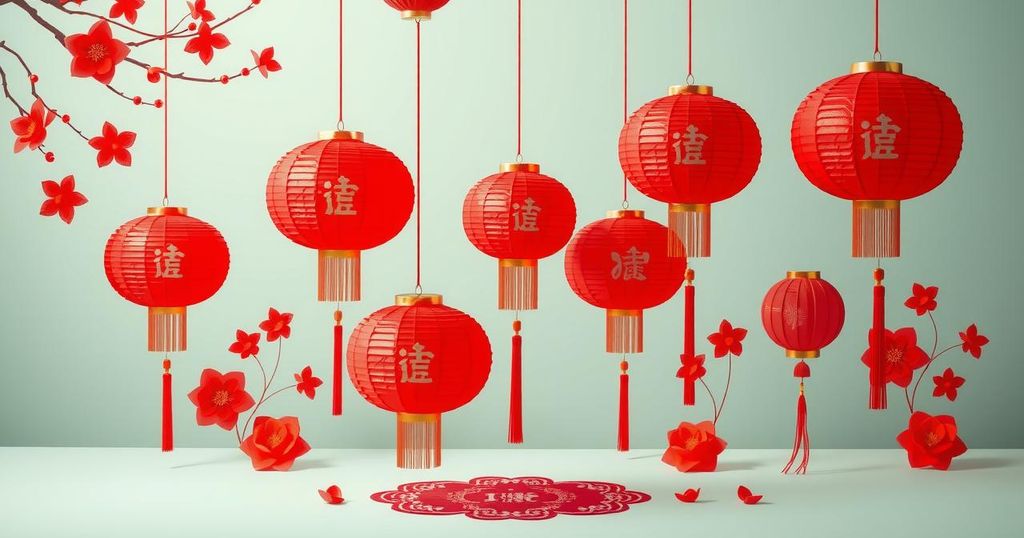Bristol’s Chinese Community Celebrates Lunar New Year Traditions

Bristol’s Chinese community is celebrating the Lunar New Year from January 29 for 15 days, sharing family traditions through music, food, and dance. Each year represents one of the 12 zodiac animals, with 2025 being the year of the snake. Key celebrations include reunion dinners and traditional dishes, along with community events to promote cultural appreciation.
Bristol’s Chinese community is marking the Lunar New Year, which began on January 29 and spans 15 days, with family traditions, music, food, and dance. Much like other areas in the UK, families come together to celebrate, reflecting a growing appreciation for diverse cultures. Joe-Wah Chow, a key organizer of these festivities, emphasizes this community spirit during the celebrations held at her family’s Eastville supermarket.
Each Lunar New Year is associated with one of the 12 zodiac animals, with 2025 designated as the year of the snake. Joe-Wah details the significance of the New Year celebration, stating, “New year is our biggest celebration, the equivalent of Christmas in the UK.” The holiday period typically encompasses a reunion dinner on the eve, marking the end of the old year, and a celebratory meal on the New Year’s day itself.
Allison Chow, Joe-Wah’s mother, highlights the importance of maintaining traditional customs even after 58 years in the UK. She notes the belief that no meat is served on the first day of the New Year to avoid taking lives and therefore jeopardizing good fortune. Traditional dishes include lo han chai, an assortment of mixed vegetables, and tangyuan, round glutinous rice balls symbolizing family unity.
Children participate in the tradition of receiving red envelopes containing money, while certain actions, like sweeping or washing hair, are avoided to prevent sweeping away good luck. Joe-Wah recognizes a shift in adherence to these customs among some individuals but affirms their continued significance in the community.
To celebrate, the Chow family organizes an event at the Wai Yee Hong supermarket, attracting hundreds of attendees through activities like lion dances meant to bless their business and ward off negative influences. Joe-Wah mentions, “We’re not gatekeepers to it. We just want to share the fun and culture,” highlighting the event’s role in educating younger generations about their heritage.
This year’s Lunar New Year event is planned for February 1 at Wai Yee Hong, with another celebration at the Bristol Museum on February 8-9 aimed at supporting The Grand Appeal, a local charity.
The Lunar New Year, celebrated by many Asian cultures, is a significant holiday that fosters family unity and cultural heritage. Traditionally lasting around 15 days, the holiday is rich in customs, including ceremonial meals, the significance of zodiac animals, and various family-oriented practices that emphasize togetherness and luck. Each year focuses on a specific zodiac animal, shaping the celebrations and traditions practiced.
The Bristol Chinese community actively celebrates the Lunar New Year with customs that emphasize family unity, cultural appreciation, and traditional practices. From festive meals to ceremonial activities, such as lion dances, community members come together to honor their heritage while educating the younger generation. Events like those at Wai Yee Hong serve not only as celebrations but also as opportunities to enrich cultural understanding and support local initiatives.
Original Source: www.bbc.co.uk







